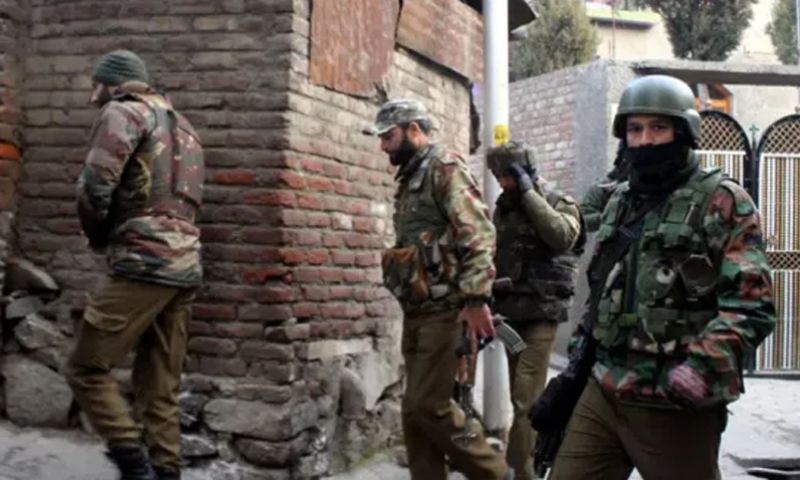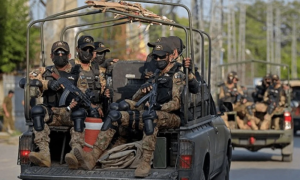ISLAMABAD: Indian security forces have escalated their aggressive cordon and search operations (CASOs) across various regions of the Indian illegally occupied Jammu and Kashmir (IIOJK), entering into consecutive days of extensive searches and raids.
Reports from Kashmir Media Service indicate that Indian army, paramilitary personnel, police, and so-called Village Defence Guards (VDG) have been conducting CASOs for the seventh consecutive day in Poonch, Rajouri, and Doda districts.
These operations, bolstered by the use of drones and sniffer dogs, were initiated promptly following an attack on an Indian Air Force convoy in the Surankote area of Poonch last Saturday. The attack resulted in the death of one Indian Air Force soldier and left several others injured. Indian authorities have reportedly detained over two dozen individuals for interrogation in connection with the incident.
In addition to the operations in Poonch, Rajouri, and Doda, Indian forces are also intensifying their searches in Udhampur and Kathua districts, now stretching into the thirteenth day. The widespread cordon and search operations have extended to urban centers and rural areas alike, including Srinagar, Baramulla, Kupwara, Kulgam, Pulwama, Shopian, and Islamabad districts of IIOJK.
These relentless operations have sparked concerns among local residents, who fear arbitrary detentions, harassment, and human rights abuses at the hands of Indian security forces. The prolonged presence of troops, coupled with the use of surveillance technology like drones, underscores the oppressive tactics employed to suppress dissent and maintain control in the volatile region.
The continuation of such heavy-handed measures underscores the ongoing militarization and militaristic approach adopted by Indian authorities in IIOJK. The Kashmiri populace remains subjected to a climate of fear and uncertainty, as security forces persist in their efforts to quell any semblance of resistance or dissent.
International human rights organizations have repeatedly condemned such tactics, calling for an end to arbitrary detentions, extrajudicial killings, and other violations of human rights in IIOJK. However, Indian authorities continue to disregard these calls, perpetuating a cycle of violence and repression in the disputed territory.
As the situation in IIOJK remains tense, with no signs of de-escalation, the plight of Kashmiri civilians caught in the crossfire of conflict continues to draw international attention and concern. The need for a peaceful resolution to the Kashmir dispute, based on the aspirations of the Kashmiri people, remains paramount in ensuring lasting peace and stability in the region


























